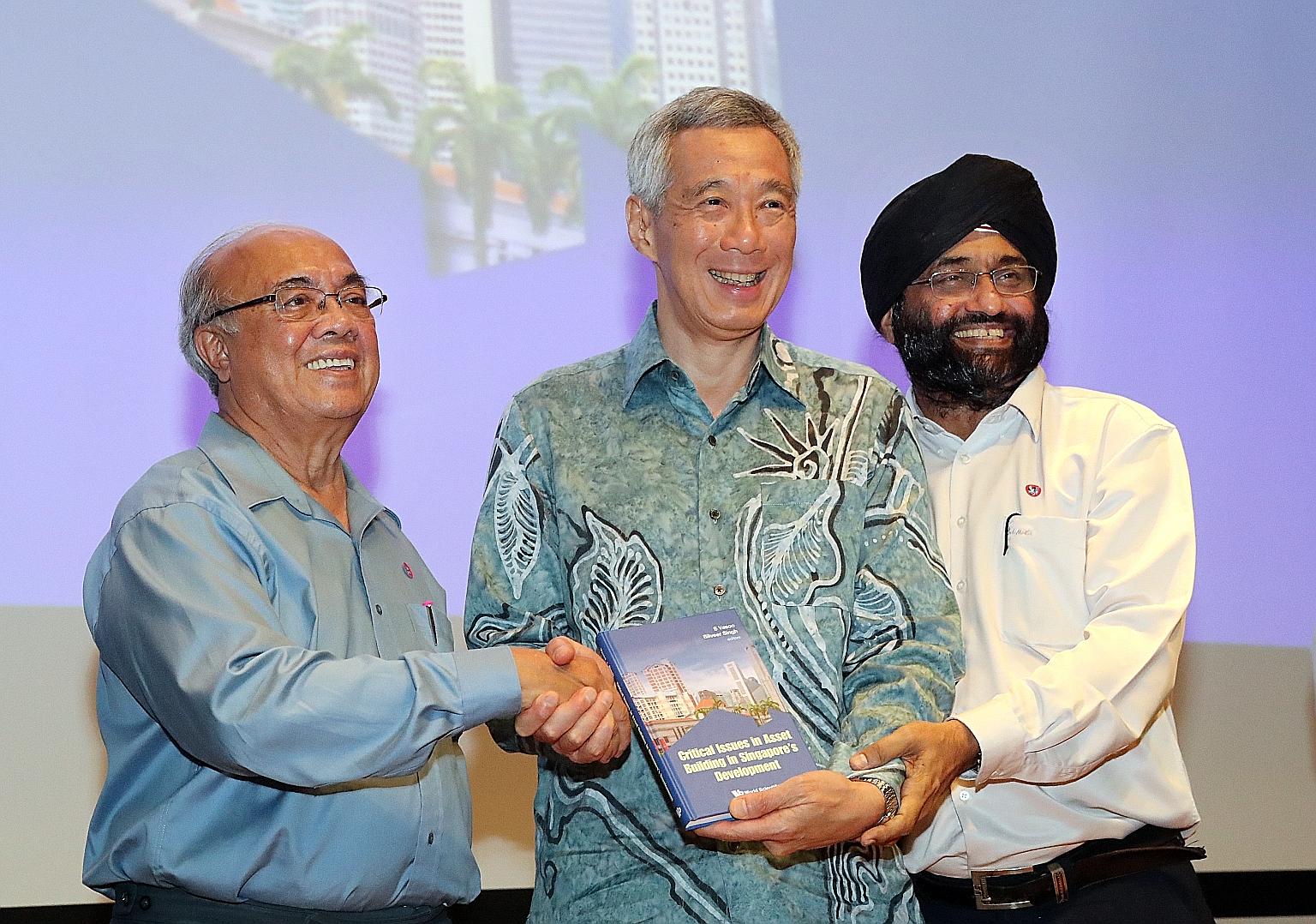Intangible assets hold Singaporeans together: Prime Minister Lee Hsien Loong
They include belief in multiculturalism and intolerance for corruption, he says
Sign up now: Get ST's newsletters delivered to your inbox

Prime Minister Lee Hsien Loong at the launch yesterday of a book edited by Associate Professor S. Vasoo (left) and Associate Professor Bilveer Singh. The book examines Singapore's asset-building policies through a series of essays, which look at traditional tangible assets as well as intangible assets.
PHOTO: LIANHE ZAOBAO
Singapore's approach to building assets, like residential property, emphasises individual work ethic and personal responsibility, supported by government policies and resources, said Prime Minister Lee Hsien Loong.
This is an approach that Singaporeans support, he added.
PM Lee made the point yesterday at the launch of a book that examines Singapore's asset-building policies through a series of essays.
Titled Critical Issues In Asset Building In Singapore's Development, the book was edited by Associate Professor S. Vasoo, a former People's Action Party (PAP) MP, and Associate Professor Bilveer Singh from the National University of Singapore (NUS). It was published by World Scientific.
PM Lee noted that the two editors defined the term "assets" broadly in their book.
The essays look at traditional tangible assets such as housing and the Central Provident Fund, as well as intangible assets which are shared values and social norms that underpin Singapore's society and unity.
The intangibles include a commitment to multiculturalism, an intolerance for corruption and an acceptance of national service as a necessary sacrifice, PM Lee said.
The support from Singaporeans is an intangible asset too, he added. "These intangibles hold us together as one people."
Yesterday's launch gathered four generations of PAP MPs at the Shaw Foundation Alumni House in NUS. They included first-generation leader Ong Pang Boon, former Cabinet ministers Ahmad Mattar and Lee Boon Yang, and current Education Minister Ong Ye Kung.
Speaking to nearly 300 guests, PM Lee recounted how he and Prof Vasoo, a former social work don at NUS, entered politics together in the 1984 General Election - they were fielded in the new Ang Mo Kio constituencies of Teck Ghee and Bowen respectively.
"Politics was a natural extension of Vasoo's passion for social work," PM Lee said. "He brought into politics the same empathy and concern for the disadvantaged that led him into social work in the first place."
Prof Vasoo served in Bowen, and subsequently Tiong Bahru GRC and Tanjong Pagar GRC before retiring from politics in 2001.
PM Lee noted Prof Vasoo continued to be active in community work after retiring, helping to look after the residents in Teck Ghee.
He said he is glad Prof Vasoo and Prof Bilveer have edited the book, as it is important for academics here to study and debate key issues that concern Singapore.
There will be a diversity of views - the academics will have ideas on how things can be done better, or at least tried out differently, he noted.
"We should encourage such debate, and conduct it in a constructive spirit," PM Lee said. "It will help us to understand the issues better, come up with better solutions... and move our debate, our policy and the outcomes forward."


